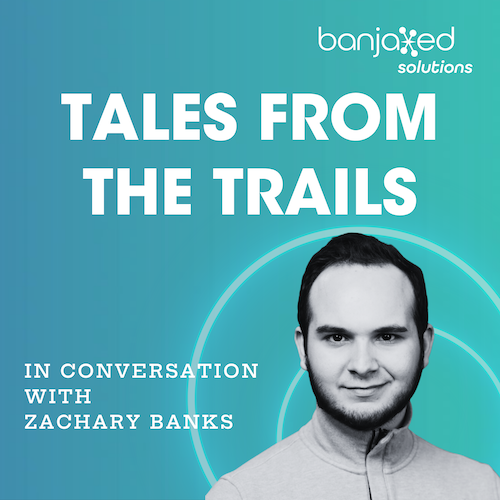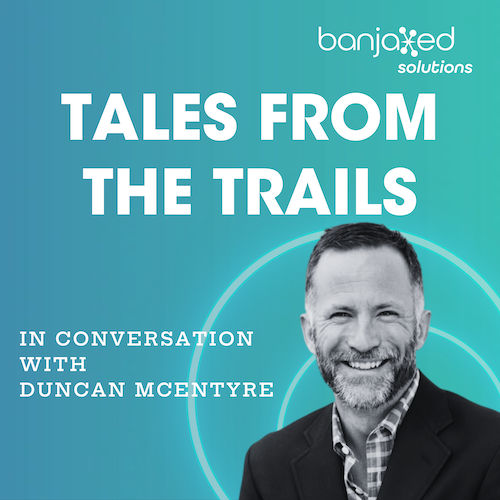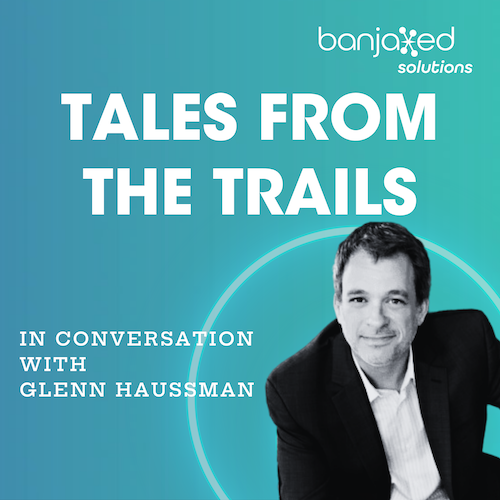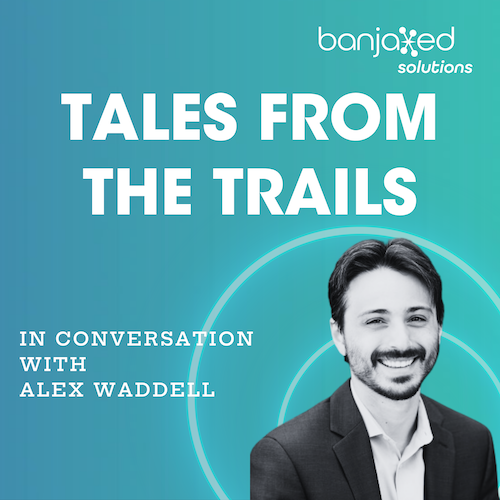
Guest: Zachary Banks, Senior Architect, Link Logistics
Get ready for an insightful discussion with Salesforce MVP Zach Banks, Senior Architect at Link Logistics, who’s navigated the intricate landscape of the Salesforce ecosystem, uncovering gems of wisdom for career transitions and strategic business moves. Today, Drew and Zach discuss the vital importance of taking your Salesforce journey seriously and the rewarding efforts of networking through events and community groups.
He also has tips for businesses getting on Salesforce. Zach has journeyed across industries—healthcare, video games, cybersecurity, finance, and real estate—harnessing the power of Salesforce. The key to understanding Salesforce, Zach explains, is not just buying licenses – it’s about aligning Salesforce’s range of capabilities with your business goals, understanding your pain points, and identifying where you want to grow.
Whether you’re an aspiring Salesforce pro, a business leader, or simply interested in understanding the Salesforce ecosystem, this episode is a goldmine of insights. Check it out and get ready to see Salesforce in a whole new light.
Understanding Salesforce
Don’t have time for the full episode? Here’s what you need to know:
The Highlights
1:17 - Link Logistics provides last-mile delivery storage locations for our customers. A lot of our customers are actually Mom-and-Pop shops. A majority of our customer base is those smaller customers that need storage for different inventory to really enable them to do that last mile delivery. And then, of course, we do have those big customers . . . like, when you think of an Amazon or a Home Depot, they also need to store stuff in a location that can quickly be procured and delivered to customers. So our business provides space for our customers to support their customer needs.
2:23 - Our customers can use it in different ways. If we have our folks with an inventory system, that's something they can totally do. So one good way to think about it is Link acts as a landlord for commercial real estate. And so we rent out our space to these customers and there's certain things they can or cannot do . . . but it really enables them to have the space to do what they need to do.
3:18 - Yep, so one of our core values is to know your customer. With knowing our customers, there are lots of data points that are very important. So, of course, knowing all the people we have leases with. The majority of our business is renting out and selling leases to these different tenants—understanding which tenant is occupying which building, who's our lease contact, who's our tenant contact, who's our billing contact. With that, there are many different operational points that people wouldn't necessarily think are on the front end of this business. But Link recognized the need to put a significant investment to really know our customers better.
4:26 - Link is making it very clear they are being a Trailblazer . . . Making such a large investment in their technology operations really enables them to better support their customers. We're putting money to work on ourselves to better support our customers' needs so we can start to anticipate what they need before they even come to us.
5:30 - I got started in the Salesforce ecosystem about 10 years ago. I was fresh out of college and I got a job in a call center, . . . who happened to be using Service Cloud for calls, emails, and chat. I was providing support to the customers of that company using Service Cloud and occasionally I would do little enhancements. I'd go create an email template, provide suggestions on this workflow, update these status values, nothing major.
6:00 - Then I moved from New England to Austin, Texas. I joined the startup company. It's a lot smaller . . . and they had a Salesforce instance that was more outdated than what I had just experienced. They were using Service Cloud as well, but their instance . . . was a very old instance. And so I, being the cocky 22-23 year-old at the time, went to the director of support and said, “Hey, I feel like I can make this better.” And . . . she basically said, prove it. She just gave me admin access that day. So there goes this 22-23 year-old running around with sys-admin privileges with nobody really helping them.
7:00 - I didn't have anyone within the company that I could ask Salesforce questions to. . . . so I turned to the community. I started going to Salesforce Saturdays where I ran into a lot of friends that I still talk to today . . . And they helped me in-person, walk through and solve these problems. I kept going to these networking events and from there I really found the value of the Trailblazer community because I was able to learn and I eventually got pointed to Trailhead and I was able to continue my education.
7:42 - Eventually, I was able to find new jobs from within the community just by networking with different people I met at these different events. My career just took off from there. I've worked at a video game company that partnered with Disney and Hasbro for Service Cloud. Then I became a Salesforce consultant for a while, where I was a dev lead. I worked on quite a few big name accounts, not to name them, but very large implementations.
8:07 - And then after that, I most recently before Link Logistics, I worked at PayPal where I was the manager of Salesforce architecture. So I had a small team of architects that I worked with to really help with the business architecture side of enterprise architecture. . . . Before that at PayPal, I was also a product manager and portfolio manager. I managed the Salesforce contract to some extent, and delivered a lot of value for PayPal logistics, overseeing engineering and architecture on Salesforce.
9:25 - Yes, I am currently in the middle of moving, otherwise I'd show you. But I do have a golden hoodie. I got it during the pandemic at World Tour in Austin, Texas. Sarah Franklin gave it to me. It was such a big honor. . . . Yes, I got the golden hoodie because during not only the pandemic, but at that point it had been a few years where I had taken over the Austin, Texas, user group. And I really helped revitalize it to where the biggest meeting, I had a 100 people or 99 people show up. I counted and I couldn't find the hundredth person. Maybe I'll just say there are a hundred for simplicity, but I really helped the community stay connected in Austin, Texas. It was really cool because I saw people that were very similar to me when I got started, they had no idea what Salesforce was and I've seen their career grow in similar ways.
11:28 - I've seen some people get discouraged because they're not getting . . . job offers anymore or they're realizing it's gonna be a job doing a career change. But it's very important that if you decide you want to do this, take it seriously. Wake up every day, treat it like a job. Doesn't mean you have to be on it every single day but you need to make an effort. You need to show up, go to these events. When you're there, try and go out of your comfort zone. . . . Basic marketing: if you don't let people know of your services, how are people going to say, “I want to hire you or I want to buy your services from you”?
12:23 - I remember back in 2015-16, when I started studying for my admin certification, I would in-between phone calls in a contact center, I would just take index cards. Trailhead wasn't that developed at the time. I did use it for a few things but it still wasn't the most amazing thing back then. . . . But just between phone calls, I would do a Google search, I would look up different terms, I would write it down. I would study and then I would go for the exam. I thankfully passed that one the first time. But it all boils down to you need to take it seriously. If you put in hard work, you'll be rewarded.
13:12 - I am going to Dreamforce, so I want to be very clear, people listening, you don't have to go to Dreamforce to get a job in Salesforce. It does help a lot, don't get me wrong. [It’s] the ultimate networking conference for Salesforce professionals. . . . I'd recommend going to like Trailblazer community groups. Finding your local user group, finding a Dreamin' and a Dreamin' event conference ticket is around $50-250, somewhere in there. If you volunteer, they often give it to you for free and volunteering could just be checking people in or stuffing bags with swag.
13:49 - Or even find a Salesforce Saturday, that's free. Just going to a coffee shop and talking to people about Salesforce.
14:27 - I think Dreamforce is a great investment but you don't need it to start out. It does help if you do go to it, don't get me wrong, but there's something about that intimate, learning people and building a relationship with them. Then if they have a job, they're going to remember somebody locally that they've met a few times at a coffee shop who’s looking [more] than somebody they've never met before.
15:23 - Just to set the stage for different businesses I've worked in and I've configured or engineered or whatever their Salesforce instance, it's been in the healthcare industry, the video game industry, the cyber security industry, the financial industry and now I'm in the real estate industry.
15:42 - It's such a great tool that's entirely customizable to your business needs. Chances are, if you have a need in business, you're not necessarily reinventing the wheel here. Somebody has probably done it before. Unless you're launching an entirely new product but then your operations are still pretty much the same—how you recognize revenue and reconcile your books and all that. I'd recommend first talking to Salesforce, of course. Salesforce will happily sell you the licenses to get going.
16:15 - But know Salesforce is not a one and done. Just because you bought this software doesn't mean all your problems are going to be solved. You need to understand what you want to get out of it. And so that goes into, what's the KPIs you need to hit? What are your pain points? What are the capabilities you want to mature?
16:33 - And then once you really understand your business vision and strategy then you can start to identify what to focus on from a very high, executive vision. Then you can really start targeting Salesforce to be, “Oh, I have an issue with my marketing funnel so I should be expanding lead management”, or have a conversation with your Salesforce account rep, be like, “hey, what do you have that can address these” because they have something, I promise you that. Chances are they'll recommend you something and then you should consider a Salesforce partner or bring in resources.
17:27 - Talk to Salesforce, figure out what you want and consider a partner or full-time resources.
If you’re still working on understanding Salesforce and how it can benefit your business, drop us a line. We can help you get aligned and on track for a successful Salesforce experience.



